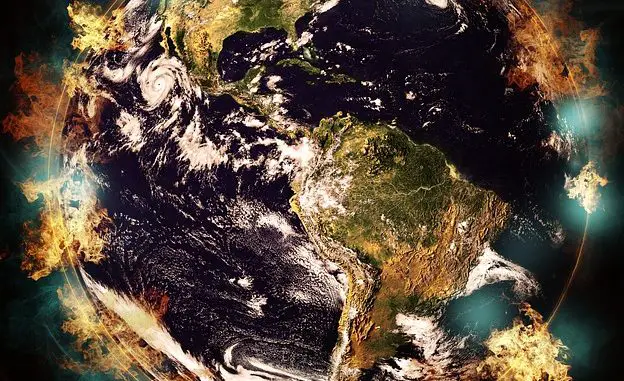
So at the end of the year, and at the end of a decade, there are plenty of headlines that hit the big alarm drum. The decade is said to be the warmest of – I don’t know what – hundreds or maybe millions of years.
Let’s be clear: Given that there has been a warm up since the Little Ice Age, it is perhaps not entirely surprising that 2019 has been a hot year (the third warmest in 100 years). Nor is it quite surprising that the decade 2010-2019 will be the hottest decade in a long time. Especially not if you consider that we had a very powerful El Nino 2016/17. This El Nino was at least as powerful as the one we experienced between 1989.
But is there any scientific basis for writing as the UN: “- If we do not take urgent climate action now we will be heading for a temperature rise of more than 3 ° C by the end of the century with increasingly harmful effects on human well-being. , said WMO Secretary-General Petteri Taalas.
– We are nowhere near meeting the goals of the Paris Agreement. ”
To go from finding that the last decade has been the warmest in a long time to claiming that it is due to CO2 and that it is harming man, as the Paris Agreement claims, is a long jump. It also ignores all scientific criticism of UN climate models that disprove their guesses of a 3 degree increase until the end of the 21st century.
If we put the record heat of the decade in perspective, a reading by one of the world’s leading climate scientists, Roy W. Spencer, is recommended. He writes:
I announce that 2019 in our 41-year data collection with global satellite measurements of the lower atmosphere will be the 3rd least chilly.
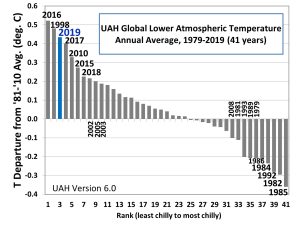
For the decade 2010-2019, satellite temperatures averaged only 0.15 C higher than in the last decade (2000-2009). That’s less than a third of a grade F, which no one would even notice for ten years.
The use of the term “hottest” to describe recent warming highlights the fact that the warming rate we have experienced in recent decades is small compared to the several dozens of degrees of temperature change most people experience during the year – and sometimes from one week to the next.
So, how should we react when the arithmetic average temperature, over all extremes, only increases by a small fraction of a degree in ten years? With fear? Indignation? Is the term “hottest” in a title supposed to touch us? Seriously?
David Whitehouse, GWPF, criticizes World Meteorological Organization’s press release (WMO) for the record decade. WMO refers to the energy content of the seas and points out that this has increased to a record level. It’s just that the sea temperature seems to have risen quite linearly since 1910, long before the carbon dioxide played any role.
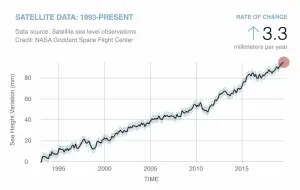
WMO’s press release shows sea level measurements only from 1993 onwards. Including past data would have given another perspective since the current trend of rising seas can be seen to have started around 1910. Their press release does not mention that any alleged acceleration in sea level change is controversial.
There is very good data in WMO’s press release, but also a very superficial analysis.
Whitehouse also points out the great importance that El Ninon 2016 played for the decade’s record heat. And that it may continue to affect the temperatures afterwards since no La Nina has come afterwards, which is usually the usual.
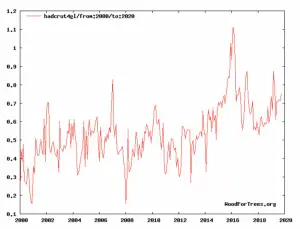
Whatever the influence of recent El Ninon in recent years, it is quite obvious that observations during the decade 2010-2019 do not constitute a scientific basis for either claims that global temperature is accelerating or for any alarmism in general. The 150-year warm-up since Lilla Istiden does not differ from the natural variation that we know the climate can have during an interglacial. Here is a reconstruction from an ice drill core (GISP2) in Greenland:
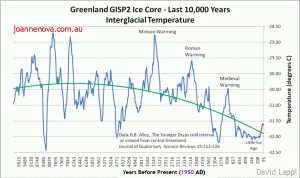
So no. The planet is not burning up. There is no need to have any climate anxiety.
Leave a Reply